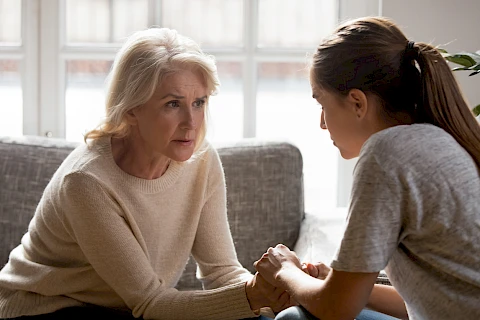
Hoarding can become a serious issue for seniors, affecting their health, safety, and overall well-being. Hoarding involves collecting and keeping items with little value, often leading to cluttered and unsafe living conditions. Addressing hoarding early is crucial to prevent accidents and to improve their quality of life.
Recognizing the Signs of Hoarding
Before you can address hoarding with your senior family member, it's vital to recognize the signs:
- Cluttered living spaces: Rooms filled with items, making movement difficult.
- Difficulty discarding items: Reluctance to throw away even insignificant things.
- Emotional attachment to possessions: Strong feelings tied to items, regardless of value.
- Health and safety hazards: Increased risk of falls, fires, or infestations.
- Social isolation: Avoidance of visitors because of the state of their home.
If these signs seem familiar, your loved one might be struggling with hoarding.
Preparing to Talk About Hoarding
Preparation is key to a successful conversation about hoarding. To prepare, educate yourself about hoarding to understand the reasons behind it and the challenges involved. You need to choose the right time and place, finding a calm, private setting where you can talk without interruptions. Approach the topic with empathy and understanding, remembering that hoarding is often linked to emotional or mental health issues. Use kind and gentle words and avoid judgmental language to prevent your loved one from feeling defensive.
Initiating the Conversation
Starting the conversation can be tough, but it's necessary. Express your concerns calmly, speaking in a relaxed tone to keep the conversation peaceful. Use "I" statements to avoid sounding accusatory. For example, say, "I noticed that it's hard to move around here," instead of "You need to clean up." Focus on health and safety risks, explaining how the clutter could hurt their health or safety. You need to listen actively to their perspective, showing that you care about their feelings and opinions.
Offering Support and Solutions
Once the conversation is started, focus on offering support and solutions to help them manage their hoarding. Suggest small, manageable steps, encouraging them to start with one area or a few items at a time. You can offer to help with decluttering by volunteering your time to assist them, making the process less overwhelming. Discuss professional help options, such as bringing in a professional organizer or a therapist specializing in hoarding. Encourage regular check-ins and stay involved by frequently monitoring their progress.
Professional Help and Resources
Often, professional help is necessary to address hoarding effectively. Professional organizers and therapists can provide structured, experienced guidance and emotional support.
Senior Helpers Sun City Supports Seniors and Their Families
Addressing hoarding with your senior family members is essential for their well-being. Starting the conversation can be challenging, but taking the first step is crucial. Remember the importance of being empathetic, patient, and supportive throughout the process.
If you need assistance, don't hesitate to reach out to Senior Helpers Sun City. Our team is ready to help families in El Mirage, Sun City, Youngstown, and Surprise tackle hoarding problems with compassion and expertise. Contact us today to learn how we can support your loved one.